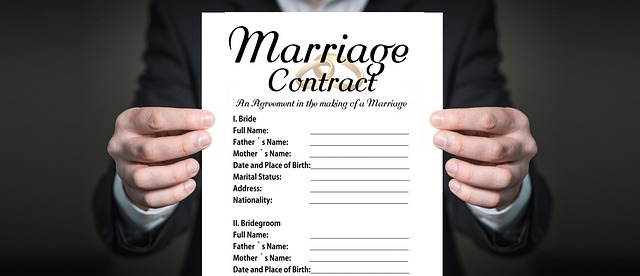When entrusted with the integrity of important documents through notarization, notaries must navigate their responsibilities with utmost precision. The weight of legal liability in notarial acts necessitates a robust understanding of notary law and ethical practices to avoid financial and legal pitfalls. This article delves into the essential steps notaries should take to protect themselves from malpractice claims, emphasizing the critical role of liability insurance, such as Errors and Omissions (E&O) insurance, and the value of a notary bond in safeguarding their professional standing. By understanding these legal and financial safeguards, notaries can effectively manage their duties and maintain the trust they are entrusted with. Key topics include the implications of errors in document certification, the impact of claims on reputation and finances, and the strategies for adhering to notary law and upholding ethical integrity through continuous education and compliant practices.
- Navigating Notary Malpractice Risks: Understanding Legal and Financial Implications
- – Notary Responsibilities and Legal Liability
Navigating Notary Malpractice Risks: Understanding Legal and Financial Implications

Notaries play a pivotal role in the officialdom process by witnessing and authenticating documents; however, this responsibility comes with inherent risks. Notary malpractice refers to professional misconduct or negligence that occurs during notarial acts. The legal and financial implications of such malpractice can be severe, impacting both the individual notary’s reputation and their financial stability. It is imperative for notaries to understand their responsibilities under Notary Law, which includes verifying the identity of individuals, administering oaths, and ensuring that all parties involved are fully aware of the document they are signing. A single error or oversight in these notarial acts can lead to claims against a notary, potentially resulting in costly legal battles and damages.
To safeguard against such risks, notaries should seriously consider obtaining Liability Insurance, specifically Errors and Omissions (E&O) insurance. This coverage is tailored to address the unique exposures faced by notaries, providing protection from claims arising from alleged errors, omissions, or negligence in the performance of their duties. E&O insurance can cover legal fees, settlements, and judgments, thereby mitigating the financial impact of malpractice suits. Additionally, a Notary Bond can serve as an extra layer of security, reinforcing the notary’s commitment to adhering to both the letter and spirit of Notary Law and maintaining high ethical standards. By understanding their legal liability and document certification responsibilities, and by securing appropriate insurance coverage, notaries can effectively manage the complexities of their role, ensuring the integrity of their work and sustaining the trust clients place in their professional services.

Notary responsibilities extend beyond the mere act of document certification; they encompass a broader scope of duties that carry significant legal liability. Each notarial act must be executed with utmost care and adherence to notary law, as any oversight or error can lead to notary claims against the individual. To safeguard against potential financial losses from such claims, it is imperative for notaries to invest in liability insurance tailored for their profession, commonly referred to as Errors and Omissions (E&O) insurance. This form of coverage provides a safety net by offering protection against claims alleging errors or omissions, as well as negligence during the performance of notarial duties. It is a critical tool that can help cover legal fees, settlements, or judgments should a claim be made and found to have merit.
Furthermore, understanding one’s role within the framework of notary ethics is equally vital. Notaries are trusted public officers who act as an impartial third party to witness and certify the authenticity of signatures on documents. The integrity of their work affects the legal standing of sensitive transactions such as property transfers, wills, and contractual agreements. A notary bond, which complements liability insurance, underscores the commitment to these professional standards. It serves as a guarantee that the notary will fulfill their responsibilities ethically and legally, providing additional security for all parties involved in notarized transactions. In essence, by securing both E&O insurance and a notary bond, professionals in this field can significantly reduce the risks associated with their duties and maintain the trust placed in them by the public and legal entities.
– Notary Responsibilities and Legal Liability

Notary responsibilities encompass a wide array of duties that are critical to the legal system. These include verifying identities, administering oaths, and witnessing the signing of documents. The accuracy and integrity of notarial acts are paramount, as they often serve as legally binding certifications that can have significant implications for both private individuals and corporate entities. Given the gravity of these acts, notaries are legally liable for their actions, or inactions, under notary law. This liability extends to ensuring the authenticity and legality of documents they notarize, which is why a comprehensive understanding of notary ethics is essential. Failure to uphold these standards can lead to notary claims being filed against them, potentially resulting in financial loss and reputational damage. To safeguard against such risks, obtaining liability insurance tailored for notaries, commonly known as Errors and Omissions (E&O) insurance, is prudent. This insurance serves as a safety net by providing financial protection against claims arising from errors, omissions, or negligence in the course of performing their duties. Furthermore, a notary bond can supplement this coverage, reinforcing the commitment to adhere to legal and ethical standards expected within the profession. By securing both liability insurance and a notary bond, notaries can effectively mitigate potential financial and legal repercussions, ensuring that they are prepared to handle any challenges that may arise in the course of their duties.
In conclusion, notaries play a critical role in the officialdom of documents, and their responsibilities carry significant legal weight. The potential for claims arising from notarial acts necessitates a robust understanding of notary law and ethics, as well as proactive measures to safeguard against unforeseen liabilities. Investing in liability insurance is essential for notaries to manage the financial risks associated with their duties, while a notary bond reaffirms their commitment to upholding the highest standards of professional conduct. By integrating these protective measures, notaries can navigate the complexities of their profession with confidence and continue to serve as trustworthy gatekeepers in the realm of document certification. It is imperative that notaries recognize the importance of such insurance coverage to protect themselves against notary claims and maintain the integrity of their professional practice.



